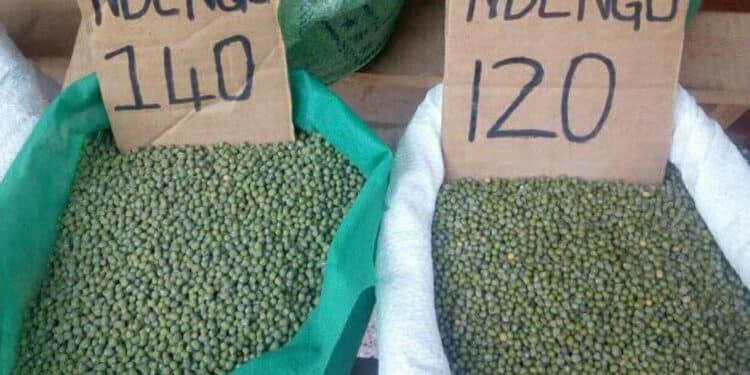The government has declared Mung Bean (ndengu) a scheduled crop alongside cocoyam.
In a gazette notice dated November 15, Agriculture and Livestock Development CS Andrew Karanja said the two crops will be developed and regulated in accordance with the provisions of the Agriculture and Food Authority Act, 2013, the Crops Act, 2013 and the crops (Food Crops) Regulations, 2019.
“In exercise of the powers conferred under section 7 (2) of the Crops Act, 2013, the Cabinet Secretary for Agriculture Livestock Development declares Mung Bean (Vigna radiata (L.) and Cocoyam (Colocasia esculenta) as scheduled Crops under Part 3 of the First Schedule of the Crops Act,” Karanja said.
Consequently, CS Karanja said the Agriculture and Food Authority will also take measures including the registration of growers, growers’ associations, and other dealers in Mung beans and cocoyam.

In addition, processing plants, warehouses, collection centres and markets where mung beans and cocoyam are traded will be required to apply for certificates.
The government will also require traders to acquire export and import clearance permits.
Other measures outlined in the notice include assurance of the safety and quality of Mung beans and cocoyams and adoption of regulations governing the marketing of mung beans and cocoyams.
The Ministry of Agriculture will also ensure promotion of best practices in production, transportation, storage and processing of Mung beans and cocoyams.
Also listed in the notice is a measure that will see the state ensure collection, collating and maintaining of a database on the production, prices and trade mung beans and cocoyams.
Also Read: Equity Bank’s James Mwangi Signs Landmark Deal With WFP in Italy to Empower Farmers
Meaning of Scheduled Crop
Scheduled crops refer to agricultural crops that are regulated and governed by the Crops Act, 2013.
The Act defines the responsibilities for their production, marketing, and regulation.
Examples of scheduled crops include sugarcane, tea, coffee, Rhodes grass, Irish potatoes, cotton, sunflower, soya beans, beans, barley, finger millet, maize, pearl millet, rice, sorghum, wheat, and pasta wheat.
The law ensures that these crops are grown, processed, and marketed to maintain quality, support farmers, and boost economic development.
Also Read: Govt Issues Warning to Mango and Avocado Exporters
Benefits
A scheduled crop benefits in a number of ways under section 8 of the Act.
First, it ensures proper marketing and distribution of these crops, helping them reach the right markets.
It also promotes an efficient and regular transportation system for scheduled crops, ensuring they are delivered on time.
Additionally, the Act provides guidance on strategies for adding value to the crops before they are exported, which can improve their quality and marketability.
Another key provision is the recommendation of industry agreements between farmers and processors of scheduled crops, which helps establish fair and effective working relationships.
The Act also prescribes a minimum period within which farmers must be paid for their delivered crops and enforces penalties for any delays in payments.
Follow our WhatsApp Channel and join our WhatsApp Group for real-time news updates.











































































